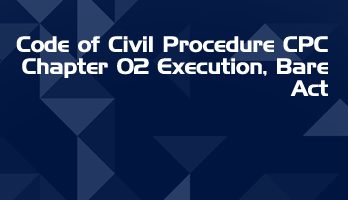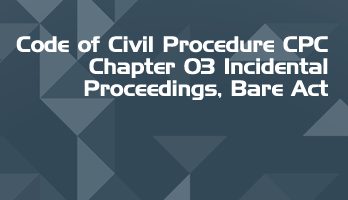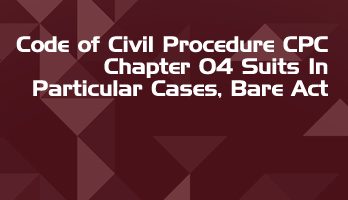A 'Bare act' is the actual legislation passed by the Parliament of India. Generally, an act sets out the high level legal and policy principles applicable to the subject matter of the law.
Most acts are accompanied by 'subsidiary legislation' such as rules, regulations, notifications and orders; which address the actual implementation detail of the act.
Free Full Course Available on LawMint's YouTube Channel
How to Land Your Dream LLB Internship in a Top Law Firm
- Part 1 - Introduction
- Part 2 - Internship Planning
- Part 3 - Internship Research
- Part 4 - Building Your Profile
- Part 5 - The Email
- Part 6 - The Resume
- Part 7 - The Cover Letter
- Part 8 - The Interview
- Part 9 - Self Development
Practical and comprehensive course, with real examples and step-by-step analysis of the complete internship application process. Check out LawMint's YouTube channel now!
The Indian Evidence Act, 1872
Chapter 3 – Facts Which Need Not be Proved
Section 56 – Fact judicially noticeable need not be proved
No fact of which the Court will take judicial notice need to be proved.
Section 57 – Facts of which Court must take judicial notice
The Court shall take judicial notice of the following facts –
- All laws in force in the territory of India;
- All public Acts passed or hereafter to be passed by Parliament of the United Kingdom and all local and personal Acts directed by Parliament of the United Kingdom to be judicially noticed;
- Articles of War for the Indian Army Navy or Air Force;
- The course of proceeding of Parliament of the United Kingdom, of the Constituent Assembly of India, of Parliament and of the legislatures established under any law for the time being in force in a Province or in the States;
- The accession and the sign manual of the Sovereign for the time being of the United Kingdom of Great Britain and Ireland;
- All seals of which English Courts take judicial notice : the seals of all the Courts in India and all Courts out of India established by the authority of the Central Government or the Crown Representative; the seals of Courts of Admiralty and Maritime Jurisdiction and of Notaries Public, and all seals which any person is authorized to use by the Constitution or an Act of Parliament of the United Kingdom or an Act or Regulation having the force of law in India;
- The accession to office, names, titles, functions and signatures of the persons filling for the time being any public office in any State, if the fact of their appointment to such office is notified in any Official Gazette;
- The existence, title and national flag of every State or Sovereign recognized by the Government of India;
- The divisions of time, the geographical divisions of the world, and public festivals, fasts and holidays notified in the Official Gazette;
- The territories under the dominion of the Government of India;
- The commencement, continuance, and termination of hostilities between the Government of India and any other State of body of persons;
- The names of the members and officers of the Court and of their deputies and subordinate officers and assistants, and also of all officers acting in execution of its process, and of or all advocates, attorneys, proctors, vakils pleaders and other persons authorized by law to appear or act before it;
- The rule of the road on land or at sea. In all these cases, and also on all matters of public history, literature, science or art, the Court may resort for its aid to appropriate books or documents of reference. If the Court is called upon by any person to take judicial notice of any fact, it may refuse to do so, unless and until such person produces any such book or document as it may consider necessary to enable it to do so.
Section 58 – Facts admitted need not be proved
No fact need to be proved in any proceeding which the parties thereto or their agents agree to admit at the hearing, or which, before the hearing, they agree to admit by any writing under their hands, or which by any rule of pleading in force at the time they are deemed to have admitted by their pleadings;
Provided that the court may, in its discretion, require the facts admitted to be proved otherwise than by such admission.
Important Central Acts in Regional Languages
Legislative department website also features regional language versions of several important Central Acts.
Free Full Course Available on LawMint's YouTube Channel
How to Land Your Dream LLB Internship in a Top Law Firm
- Part 1 - Introduction
- Part 2 - Internship Planning
- Part 3 - Internship Research
- Part 4 - Building Your Profile
- Part 5 - The Email
- Part 6 - The Resume
- Part 7 - The Cover Letter
- Part 8 - The Interview
- Part 9 - Self Development
Practical and comprehensive course, with real examples and step-by-step analysis of the complete internship application process. Check out LawMint's YouTube channel now!












